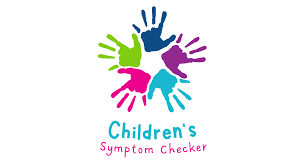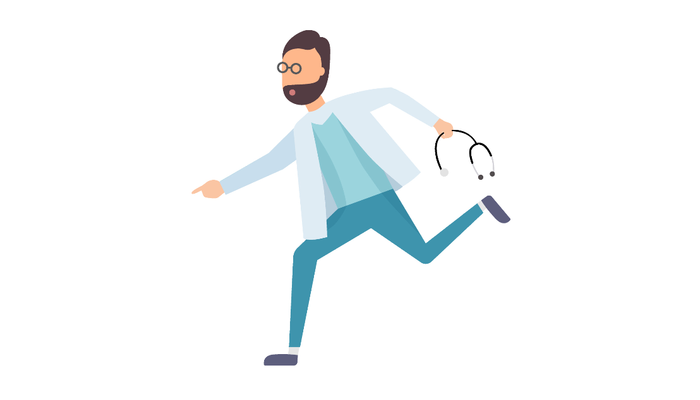
Coronavirus (COVID-19)
Posted on 15 March 2020
Stay at home if you have coronavirus symptoms
Stay at home for 10 days if you have ANY of these symptoms:
- A high temperature
- A new continuous cough
- Loss or change in sense of taste or smell
These symptoms are important even if you think they are due to something else.
Self isolation
If you live with other people, they should stay at home for 14 days from the first day the first person in the household had symptoms.
This will help to protect others in your community while you are infectious.
DO NOT go to a GP surgery, pharmacy or hospital. You can phone the NHS helpline on 111 or your GP for advice. Call an ambulabce if you feel very unwell, especially if you have difficulty breathing.
Testing
From 1 June 2020, you should arrange coronavirus testing for yourself if you have symptoms. This can be done by phoning 119 or visiting the NHS coronavirus test booking site. Tests can be posted out to your home or carried out at drive-through centres in Belfast, Londonderry, Craigavon and Enniskillen.
The SARS-CoV-2 virus is a new strain of coronavirus first identified in Wuhan City, China in December 2019. It causes a new illness known as COVID-19, which is affecting many countries, including the UK and Ireland, as part of a global pandemic.
COVID-19 causes a flu-like illness, with fever, sore muscles, headache, cough and tiredness. It can result in more severe breathing problems like pneumonia.
If you are suffering from coronavirus symptoms, DO NOT enter the practice. Contact reception on the usual number 028 9027 9880. Let the receptionist know if you are very unwell at the beginning of your call.
You can also phone the NHS helpline on 111 for advice or phone 119 to arrange a test.
What should I do if I do not have symptoms?
Everyone should follow the Government's advice to stay at home and observe social distancing to help slow the spread of the virus.
Those in high-risk groups will have previously received a letter with advice about shielding. This shielding period ended for most people in late July 2020.
Infection control measures
Even those who are well and who have no symptoms should observe the following infection control measures:
- Hand washing more often than usual
- Social distancing
- Use a tissue to catch coughs and sneezes, then bin the tissue and wash your hands
- Avoid touching your face
- Avoid close contact with those who are unwell

Self isolation
- If you have symptoms of coronavirus infection (COVID-19), however mild, do not leave your home for 10 days from when your symptoms started.
- All household members should also isolate for 14 days from the first day the first member of their household had symptoms.
- This will help protect others in your community while you are infectious.
- Plan ahead and ask others for help to ensure you can successfully stay at home.
- Ask your employer, friends and family to help you to get the things you need to stay at home.
- Stay at least 2 metres (6 feet) away from other people in your home whenever possible.
- Sleep alone, if possible.
- Wash your hands regularly for 20 seconds, each time using soap and water, or use hand sanitiser. You can view and print hand washing guidance.
- Stay away from vulnerable individuals, such as the elderly and those with underlying health conditions, as much as possible.
- If your symptoms worsen during home isolation or are no better after 7 days, contact the practice or NHS 111 online. If you have no internet access, you can call 111. For a medical emergency (such as difficulty breathing) dial 999.
You can find further information on planning for home isolation here.
Testing for COVID-19
From 1 June 2020, you should arrange coronavirus testing for yourself if you have symptoms. This can be done by phoning 119 or visiting the NHS coronavirus test booking site. Tests can be posted out to your home or carried out at drive-through centres in Belfast, Londonderry, Craigavon and Enniskillen.
If your result is positive, you will be contacted by the Public Health Agency, who will arrange contact tracing. If you are a contact of a person with a positice test, you must self isolate at home for 2 weeks even if you feel well amor have had a negative test, due to tge incubation period of the virus .
Please note that the tests are not 100% accurate and they are affected by poor technique. Please follow the instructions carefully.
Adjustments at our practice
At Church View Medical Practice we made significant changes to the operating of the practice to reduce footfall (thus reducing the risk of transmission) and manage the burden of COVID-19, in line with Government guidance. You can monitor this page for updates. We appreciate your patience, cooperation and understanding.
- We are reducing the provision of some routine healthcare services. These will be gradually reinstated as the circulating levels of the virus fall.
- Face to face appointments can only be booked by speaking to a nurse or doctor. We are still able to see patients face-to-face, but there are fewer appointment slots to limit the number of people in the practice at one time. Most consultations will be conducted by telephone or video.
- If you are visiting the practice, please follow our guidance by wearing a face covering, maintaining social distancing, using the provided hand sanitiser and having your temperature checked on entry to the reception area.
- Patients with symptoms of COVID-19 (even if due to another cause) who need to be assessed face-to-face will be referred to the Belfast Primary Care COVID-19 Centre at Beech Hall Health and Wellbeing Centre on the Andersonstown Road. This is staffed by local GPs (including from our practice) and teams from Belfast Health and Social Care Trust.
- We may not perform non-NHS services (preparing letters or medical reports) until further notice, with the exception of driving license medicals that may be needed by key workers.
- Childhood vaccinations and blood tests for monitoring anticoagulant, immunosuppressant and biological drugs should continue. Please speak to reception for details.
How can I help?
- Follow the Government's current guidance to reduce the spread of the virus.
- Consider installing the StopCOVID NI Proximity App on your smartphone. It will notify you if you have been near someone who tests positive for COVID-19.
- Do not come to the practice if you have symptoms of coronavirus infection.
- Do not congregate in the reception area, waiting room or foyer. Please maintain a distance of 2 metres (6 feet) from other people while in or near the practice, wear a mask, use the hand sanitiser provided and have your temperature checked on entry to the reception area.
- Contact the NHS 111 service for advice or if you need a medical certificate while being isolated due to suspected coronavirus infection in your household.
- Please order repeat prescriptions seven days before they are needed and designate a local pharmacy to collect them on your behalf. Acute prescriptions (e.g. one-off short-term prescriptions) can still be collected from reception. Click here for information on the delays in dispensing from pharmacies.
- Do not stockpile your medication or order prescriptions more than seven days early.
- Please order repeat prescriptions online instead of by telephone. Consider signing up for Patient Access, which makes this process easier.
- We appreciate your patience and understanding when dealing with health care services, such as our practice or your pharmacy. All areas of the health service are under unprecedented pressure due to the coronavirus pandemic.
Further information
You can find advice and updates from the UK Government and NHS and detailed information from the Northern Ireland Public Health Agency.
For advice on looking after your mental health at this time, please see our article on mental health during lockdown.
Pathway to Recovery
On 12 May 2020, the Northern Ireland Executive released the Coronavirus Recovery Plan, detailing the gradual relaxation of social and economic restrictions.
The restrictions will be dynamic so please monitor the media for information on the current guidance. The further relaxation of measures depends on the number of cases and the spread of the virus and will be announced by the Northern Ireland Executive.
There is still a significant threat from coronavirus and a second rise in cases will happen if restrictions are lifted too quickly. Please stay at home as much as possible, wear a face covering when indoors with people who are not part of your household, observe social distancing of 2 metres (6 feet) and wash or sanitise your hands regularly.
UK coronavirus statistics
The local Department of Health COVID-19 Dashboard provides detailed statistics for Northern Ireland.
About this data
Until June 2020, only certain groups were being tested, such as care home residents, key workers and those being admitted to hospital. The true number of cases is likely to be many times higher.
Source for UK data: covid19api.com
Data from Johns Hopkins University using a variety of sources including the World Health Organisation and the European Centre for Disease Prevention and Control.
Updated 1 October 2020










